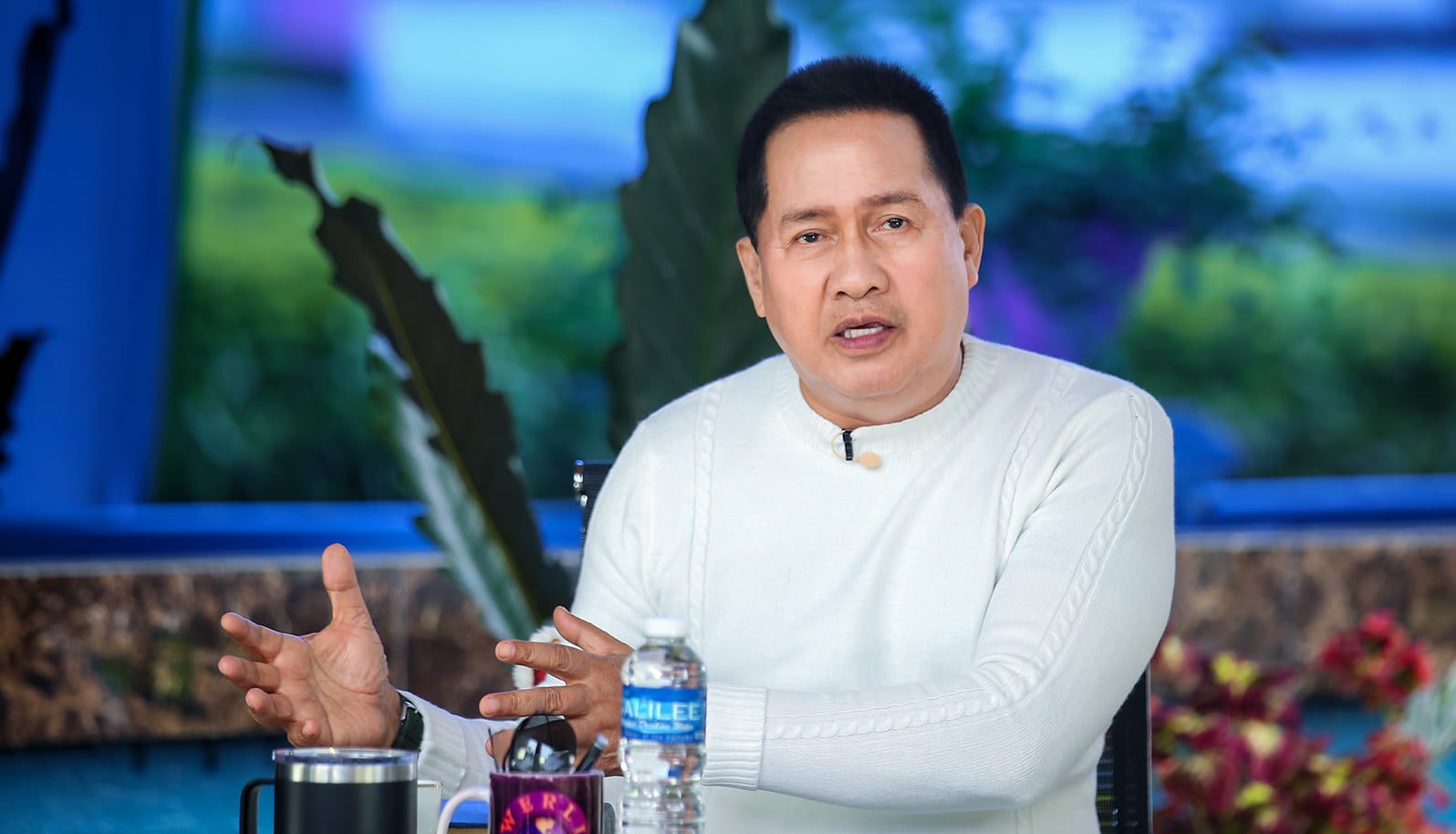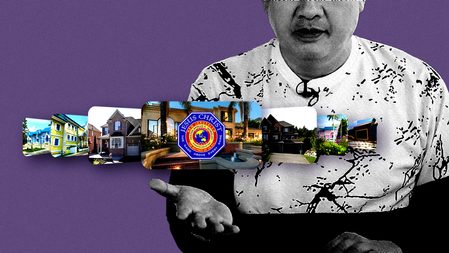SUMMARY
This is AI generated summarization, which may have errors. For context, always refer to the full article.

Doomsday preacher Apollo Quiboloy is wanted in the United States for sexual trafficking, and has been charged in two Philippine courts also for trafficking and child abuse.
On Wednesday, April 3, a warrant obtained by Rappler showed that Presiding Judge Dante Baguio of Davao City Regional Trial Court Branch 12 ordered Quiboloy’s arrest. On top of these, Quiboloy also faces another arrest and detention, courtesy of the Philippine Senate.
The Senate’s arrest order was issued after Quiboloy was held in contempt for snubbing the summons of the Senate committee on women, children, family relations, and gender equality, led by opposition Senator Risa Hontiveros. The same committee has already heard testimonies of Quiboloy’s alleged abuses from former workers of his religious group, Kingdom of Jesus Christ.
Still evading the Senate, one of Quiboloy’s lawyers told the Philippine Star that they had filed a petition before the Supreme Court to ask the High Court to stop the “unjust and unconstitutional” Senate warrant.
Is he obliged to appear?
The Constitution empowers the Senate to conduct inquiries in aid of legislation. That is the legal basis for the Rules of the Senate, under which the Upper House can summon witnesses and ask them to bring documents to the inquiry.
Inquiries in aid of legislation have to be based on legislative intent, or hinged on a law or a measure that the Senate wants to strengthen or make more efficient. When former senator Antonio Trillanes IV wanted to investigate former solicitor general Jose Calida for the government contracts won by the latter’s family-owned company, the alleged lack of legislative intent prompted Calida to go to the Supreme Court to stop it. The investigation never pushed through.
If the Senate issues the subpoena to a person, “all those subpoenaed by the Senate or its Committees in aid of legislation have no choice but to appear before the Senate or its committees,” retired SC senior associate justice Antonio Carpio said in a statement.
The rules of the Senate also say that if the summoned person does not appear, he/she may be held in contempt and detained. That is why the Senate can issue the arrest warrant, even though under general rules, only judges of courts can issue warrants of arrest. The person may be detained under the custody of the Senate’s sergeant-at-arms “until he/she agrees to produce the required documents, or to be sworn or to testify, or otherwise purge himself/herself of that contempt.”
This happened a couple of times, like when the Senate held in contempt and ordered the detention of some cops involved in the killing of 17-year-old Jemboy Baltazar. Some cops caused confusion and were uncooperative during one of the Senate hearings on Baltazar, which prompted Hontiveros to order their detention.
The Senate’s power to detain is not absolute, however. This mandate should be balanced with every person’s right to be free, “unless detained by a judge for a case that has gone through the rules of court.”
In several instances, the SC had reminded the Senate of its limited powers. In the hazing case of University of Santo Tomas law student Atio Castillo, the SC noted that the Senate can detain a person held in contempt only for as long as an inquiry was ongoing.

On self-incrimination
Quiboloy, in his SC petition, argued that the Senate probe violates his rights against self-incrimination.
Every person is protected by laws to avoid incriminating himself/herself by giving information that can be used against himself/herself. This is enshrined in article III, section 17, of the 1987 Constitution: “No person shall be compelled to be a witness against himself.”
But according to Carpio, a person may only raise his/her right against self-incrimination and refuse an incrimination question, only after a question was asked during a Senate inquiry. The retired SC senior magistrate said before a question is asked by the Senate or its committees, “there is no constitutional right that may be violated.”
Carpio said the jurisprudence or previous court rulings about the Senate’s power to subpoena and people’s rights against self-incrimination are “well-settled.” He cited Romero II v. Senate committee on labor, employment, and human resources case, where the SC quoted Sabio v. Gordon.
In the said case, the SC said the right against self-incrimination may be invoked “only when the
incriminating question is being asked, since they have no way of knowing in advance the nature or effect of the questions to be asked of them.”
“The unremitting obligation of every citizen is to respond to subpoena, to respect the dignity of the Congress and its Committees, and to testify fully with respect to matters within the realm of proper investigation,” the decision added.
Carpio also said that the Rules of the Senate also explain invocation of the right against self-incrimination. Under section 19, resolution 5, a “witness can invoke his right against self-incrimination only when a question which tends to elicit an answer that will incriminate him is propounded to him.”
“His/her invocation of such right does not by itself excuse him from his duty to give testimony,” the rules said. – Rappler.com
1 comment
How does this make you feel?










![[WATCH] Bamban POGO scandal: There’s a bigger fish than Alice Guo](https://www.rappler.com/tachyon/2024/07/inside-track-tcard-bamban-pogo.jpg?resize=257%2C257&crop=435px%2C0px%2C1080px%2C1080px)
So what happens now? How long shall we wait for the Supreme Court’s decision on the petition asking it to stop the “unjust and unconstitutional” Senate warrant? Meanwhile, what about the arrest warrant issued by the Davao City Regional Trial Court Branch 12? This shows what money, power, and influence can do to our Justice System.